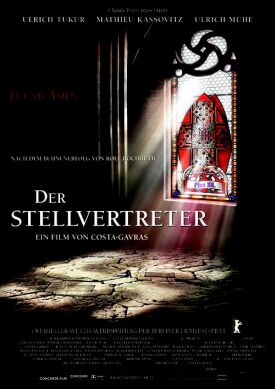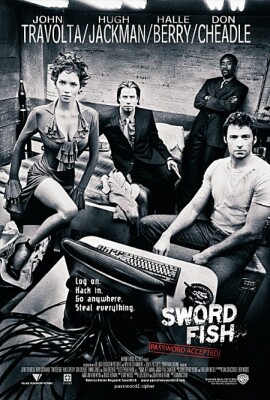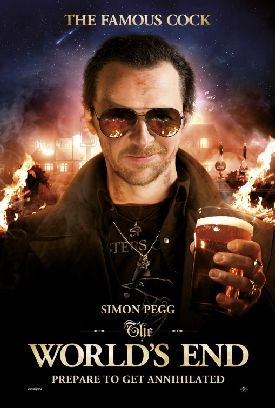Amen (Der Stellvertreter)
A criminal lunatic takes a family hostage and begins murdering them one by one. As the police close in, a kindly neighbor creeps into the house under the kidnapper’s gun and manages to spirit two of the family’s children out and to safety. After the siege is over and the killer and the rest of the family are all dead, a former associate of the perp in one of his criminal enterprises comes forward with a stinging indictment of — the kindly neighbor! Instead of quietly saving those two lives, this person says, the neighbor should have become a moral popinjay, preening himself and making a public parade of his firm disapproval of murder and kidnapping, so incurring, if possible, a pointless martyrdom. Not to have done so amounted to complicity in the crime.
If this argument makes sense to you, you are probably Rolf Hochhuth, the former Hitler Youth whose play, The Deputy (Der Stellvertreter), was the sensation of Broadway in 1964 when it made much the same argument about Pope Pius XII and the Holocaust. In the intervening decades, this bit of anti-Catholic mythology has been lovingly tended and nurtured by the likes of Garry Wills, John Cornwell and Daniel Goldhagen, but Costa-Gavras, that reliable propagandist for every fashionable left-wing cause, and his co-scenarist, Jean-Claude Grumberg, have gone back to Hochhuth’s play for the foundation of their new film, Amen. Of course they have added a few things, like beginning with a scene in which nuns are depicted as assisting in the gassing of handicapped and retarded children. But the main lines are pure Hochhuth.
Kurt Gerstein (Ulrich Tukur), based on a real historical character with the same name, is a devout (Protestant) Christian and a lieutenant in the SS who, when he finds out what is going on in the death camps of Poland, tries to warn the world. At first he approaches a Swedish diplomat, who offers him asylum in Sweden, but he refuses to leave his country. Then he tries to interest his pastor and members of his own church, but they are too frightened to help. Finally he goes to the papal nuncio in Berlin, who suspects him of being an agent provocateur and throws him out. “An SS officer defending the Jews? They must think we are idiots.” But a young Jesuit called Riccardo Fontana (Mathieu Kassovitz), a “composite” character, according to Costa-Gavras, hears Gerstein’s story and believes him.
As it happens, this young man’s father (Ion Caramitru) is a courtier at the papal court and a close friend of the pontiff. Riccardo undertakes to alert His Holiness (Marcel Iures) himself, believing that, once he knows the truth he will speak out, denouncing Hitler and causing the German people to rise up against him. Needless to say, this doesn’t happen. One of the problems with historical films is that it is hard to build up suspense. Your audience already knows that the Holocaust is not going to have a happy ending. Not that Costa-Gavras doesn’t do what he can by punctuating his film with shots of cattle trains — we know where they are going — racing across barren Polish (actually Romanian) landscapes accompanied by energetic chugging music, as if something might yet stop them.
But it is obvious that the movie’s real emotional energy has gone into traducing the pope, who is depicted as an impotent, hand-wringing weakling, forever proclaiming his distress at the sufferings of the Nazis’ victims and his intentions to pray for them but unwilling otherwise to lift a finger to help. At the news of some new German atrocity, he says to a secretary: “Summon the ambassador. Inform him of our anger and our sorrow — no, our sorrow and our anger.”His only real anxiety, and that of the other church leaders as depicted in the film, is for the church’s property which he fears will be plundered if he should antagonize the Germans. He feels far more genuine indignation over the destruction of Monte Cassino by the Americans than anything told to him by Riccardo about the Nazis.
This is what Costa-Gavras imagines Pius XII would have thought and felt, though there is no foundation for supposing so, apart from his anti-Catholic prejudice. Still, it is worth taking seriously Riccardo’s argument that if the pope had spoken out more forcefully — and Costa-Gavras ignores the occasions when he did speak out — he might have saved more Jews than he did by quiet actions behind the scenes. Would the pope’s denunciation have caused an uprising of German Catholics against Hitler? It seems most unlikely, since accusations of war-crimes were rife on both sides and the evidence was not conclusive that this would have been anything but another bit of allied propaganda. Even if it was believed, Hitler could easily have crushed any revolt and would certainly have retaliated against the church in ways which, if they did not destroy it, would have prevented it from saving the Jews it did save.
Nor does Costa-Gavras acknowledge the undisputed historical facts of this rescue. It’s true that there is a brief scene in which Jews are shown being given sanctuary in a monastery, but this is at the instance of Count Fontana and others, not the cinematic pope — whose historical counterpart, according to the Jewish historian Pinchas Lapide, actually effected the rescue of at least 700,000 Jews. Of course, the wise know that movie history is history for suckers. It is hard to think of a historical film that is not mere propaganda for one side or the other in ongoing arguments whose more serious participants will have recourse to real history and real historians. But there is propaganda and there is caricature, and Costa-Gavras’s is second only to Oliver Stone’s as an example of the latter.
Discover more from James Bowman
Subscribe to get the latest posts to your email.







